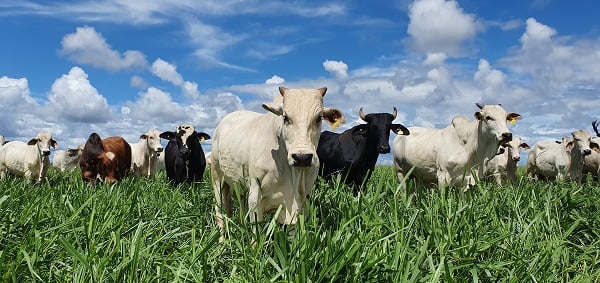Embrapa shows low carbon livestock protocols in the US
Embrapa presents low-carbon livestock protocols in the US System tripled meat production without increasing GHG emissions

Increasing global demand challenges farmers and companies to produce low carbon food and even neutralizing greenhouse gases (GHG) to contain climate change.
Embrapa has been developing technologies to produce beef based on Low Carbon Meat (CBC) protocol, which is based on crop-livestock integration systems.
The protocol recommends proper management of crops, pastures and livestock, as well as monitoring soil carbon levels, in order to increase meat production sustainably.
The so called “Trijunção Project’ has been carried out in Jaborandi city, Bahia state. The results will be presented at the 8th International Greenhouse Gas and Animal Agriculture Conference – (GGAA), between 5th and 10th of June, in Florida, US.
Embrapa Milho and Sorghum researcher, Flávia Cristina dos Santos, the project´s coordinator, will present a study regarding GHG mitigation entitled “Low carbon beef: a case study in a sandy soil from Brazilian Cerrado”.
The objective of the research was to evaluate a strategy to intensify beef cattle in Brazilian Cerrado biome, evaluating forage productions, soil cover, enteric emissions, Live Weight Gain (LWG) and changes in soil carbon stocks (dSOC) in the 0 to 40 cm layer.
Low carbon
In May 2019, an experimental area was set up with three treatments: pasture using low carbon meat protocol, pasture using conventional farm management and native vegetation of the Cerrado Biome.
CBC protocol makes possible to triple grass-fed beef production, without increasing greenhouse gas emissions per capita, and still generate the “land-saving” effect. In addition, the technology provides greater accumulation of carbon in the soil compared to conventional management.


